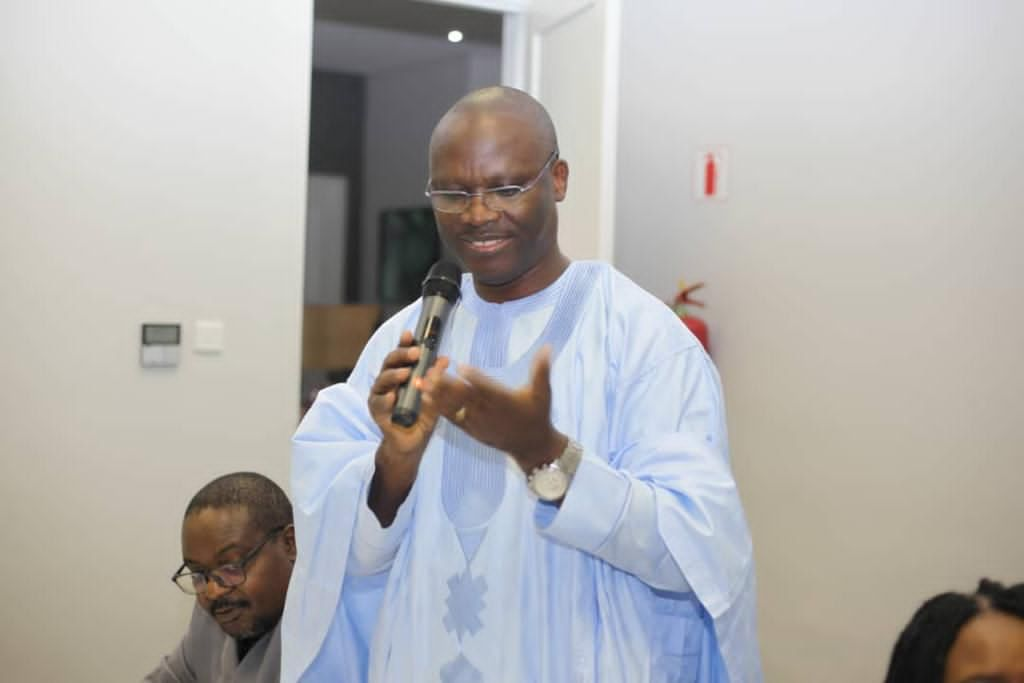Accra, Dec. 5, GNA -The utilisation of Genome Editing (GEd), a scientific technology, can help develop pests-resistance seed varieties to boost food security, Dr Olalekan Akinbo, Supervisor AUDA-NEPAD Centre of Excellence in Science Technology and Innovation has said.
He described GEd as a technology similar to the conventional breeding usually conducted by agriculturists to take out an undesired trait in crop and replace with a desired one from the same crop family.
He explained that with the use of pests-resistance seeds the frequency farmers needed to spray their crops would reduce and help them make savings.
Dr Akinbo who was speaking to a group of science journalists in Accra during the development of a GEd Communications Strategy for Ghana said GEd technology would ensure sustainability and protect biodiversity – varieties of plants and animals – from harmful chemical substances.
The event served as platform to build on and complement the ongoing African Union Development Agency – New Partnership for Africa’s Development (AUDA-NEPAD) efforts towards enhancing regulatory capacities on Biosafety through the African Biosafety network of Expertise (ABNE).
While ABNE’s focus is on regulation to ensure biosafety, the AUDA-NEPAD Centre of Excellence in Science, Technology, and Innovation brings in a focus on innovation and Research and Development capacities towards the commercialisation of genome edited agricultural products to improve livelihoods.
This is from the recognition as contained In Agenda 2063 that technological advancements from biotechnological innovations in plant and animal breeding have the potential to advance continental agricultural sustainability goals and transform African societies.
Dr Akinbo said there were many organisms in the soil that perform different roles in the ecosystem including supporting plant growth, but excessive use of pesticide ends up killing them which affects the integrity of the environment.
He stated that if the planting material was bad, the yield would be poor but if the seed was good and farmers adhered to good agronomic practices, they would get maximum yield.
On the extension of the shelve life of crops, he explained that a ‘messenger system’ in tomatoes gene could be altered using GEd technology to slow down the fast rate of ripping.
“There is a chemical in food crops including tomatoes, mango, plantain and avocado that signal ripping. Using the technology, the messenger system can send a signal that it should not rip in 10 days but should delay in 40 days. This will not in any way affect the nutritional value, the taste, and the content,” he said.
Professor Paul P. Bosu, the Director-General of the Council for Scientific and Industrial Research, said emerging technologies in Agricultural Biotechnology including GEd offered a unique opportunity for the continent to ensure food security.
“Indeed, Africa should complement this technology with other tools such as conventional breeding to tackle biotic and abiotic stresses that slow down agricultural productivity,” he said.
The Director General said the recent events such as the COVID-19 pandemic and the Russian-Ukraine war had exposed the vulnerability of African states to shocks.
He said the GEd presented an opportunity for renewed focus on STI to create solutions that can strengthen Africa’s food systems and enhance its resilience.

Prof Bosu called for sustained communication, education, and public awareness among the citizenry about the role of modern biotechnology and the contribution of genome editing in sustaining agricultural production and productivity.
He said through communication, citizens would appreciate the role of modern biotechnology in propelling sustainable development and promoting food security on the continent.
“As a technology, genome editing appears fairly new to us and is in its formative stages of development and application in Africa. It appears a bit technical and abstract to the average person with little appreciation of science,” he said.
GNA